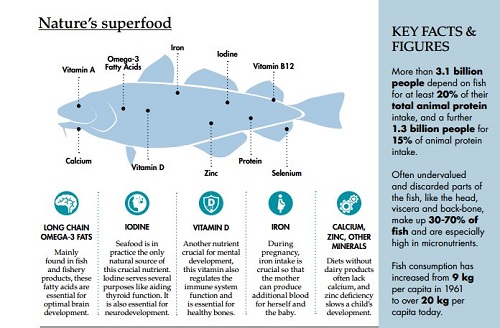
HEALTH BEBEFITS
Seafood plays an important role in global food security and presents both challenges and opportunities for sustainable food production. Seafood is among the most highly traded foods and is an important source of protein, essential fatty acids, and micronutrients. The seafood sector has been evolving in recent years with the rapid growth in aquaculture, geographical shifts in trade, and increasing commoditization and vertical integration. This article overviews the patterns and trends in global seafood trade, highlighting the increasing globalization of seafood, regional differences in seafood trends, and recent changes within the global seafood sector. The article then outlines the implications of global seafood trade for food security and environmental sustainability. An omega-3 fatty acid is an unsaturated fat that can be beneficial to people, and some omega-3s are integral for healthy living. People who eat fish have lower blood pressure, a lower risk of abnormal heart rhythms, and fewer fatal heart attacks than those who do not include fish in their diet.

